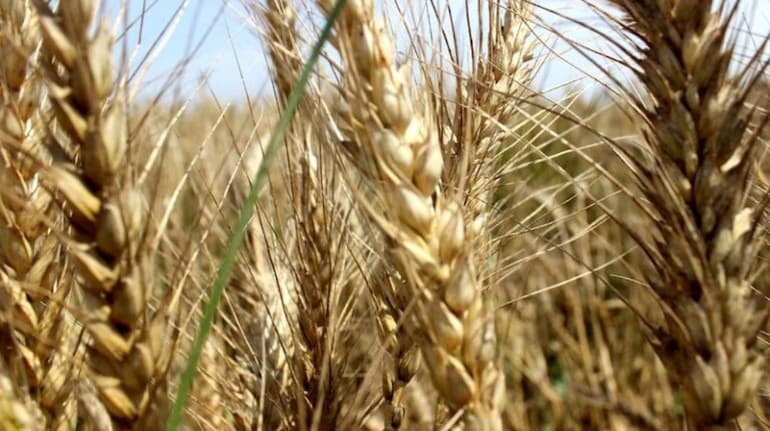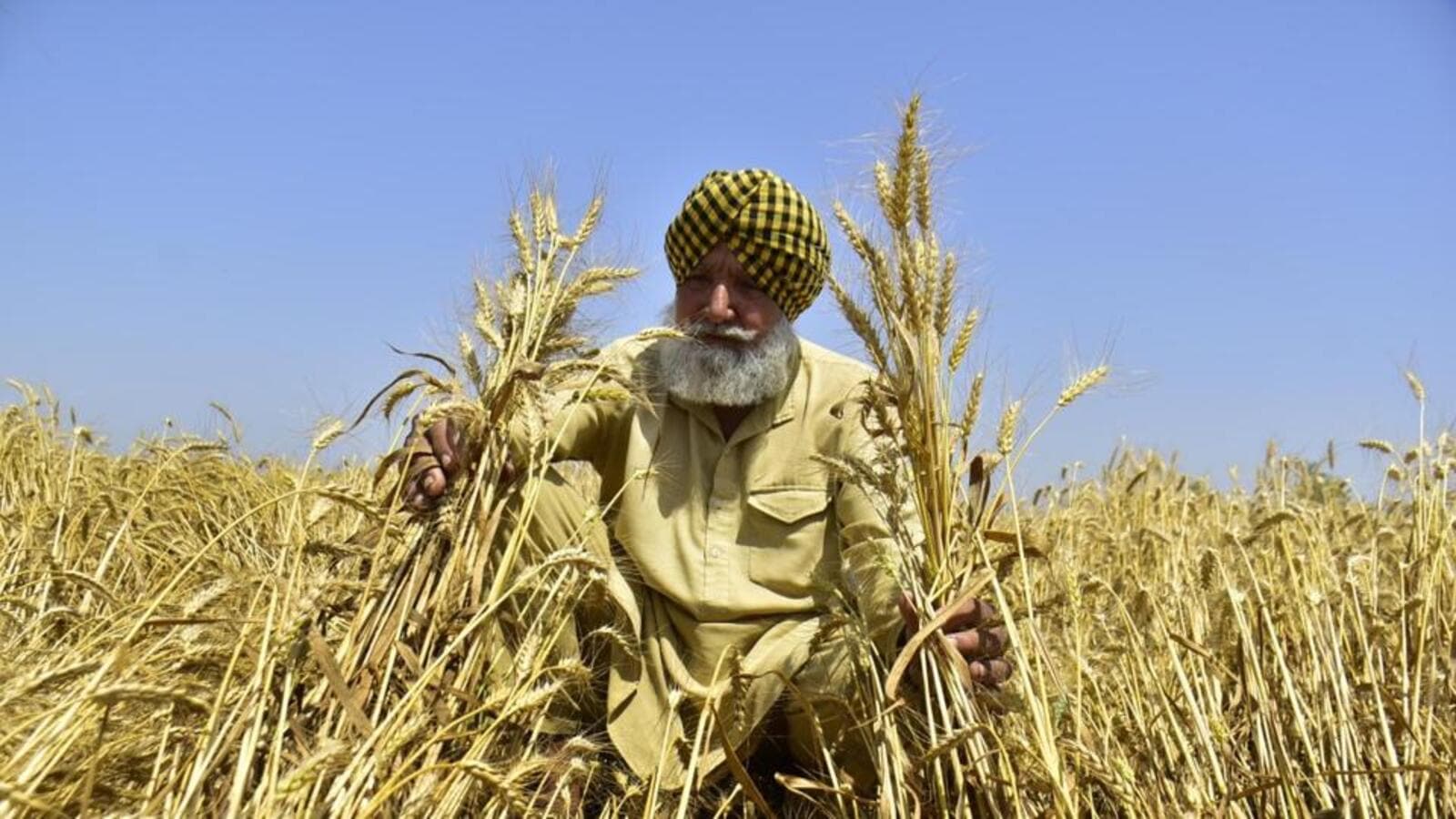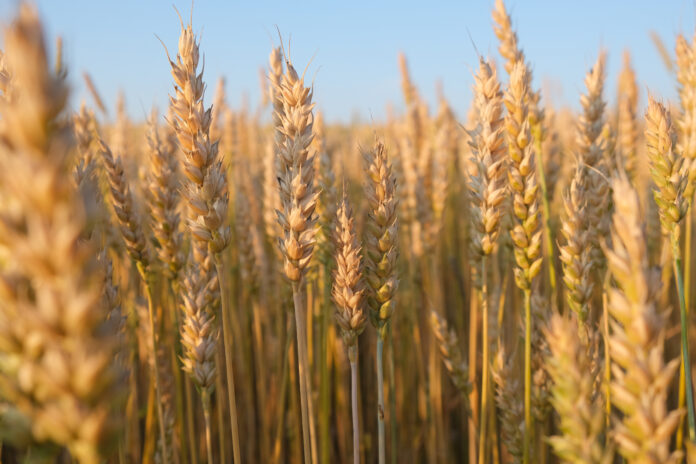Sale of wheat, rice to states under OMSS stopped to maintain adequate buffer stocks, control prices
State governments of Karnataka, West Bengal and Tamil Nadu have requested wheat and rice under OMSS (D) Policy, which was not acceded to due to the discontinuation of the sale of wheat and rice to states under OMSS(D) 2023.

The Indian government made an announcement on Wednesday regarding the cessation of the sale of wheat and rice to state governments under the Open Market Sale Scheme (OMSS). This decision came into effect from June 13 and was primarily taken to ensure the maintenance of a sufficient buffer stock and regulate price increases in the market. The move was driven by concerns about the potential impact of a predicted shortfall in monsoon rains on the Kharif crop, which is a major agricultural season in India.
The decision to discontinue the sale of wheat and rice under the OMSS was disclosed by Sadhvi Niranjan Jyoti, the Minister of State for Food and Consumer Affairs, in a written reply to the Lok Sabha. The government’s objective was to secure an adequate stock level in the central pool to support the distribution of essential food supplies under the National Food Security Act and various welfare schemes.
The concern about a possible deficiency in rainfall was rooted in the El-Nino weather phenomenon, as forecasted by the India Meteorological Department (IMD). El-Nino is known to have significant impacts on weather patterns worldwide, including disrupting the monsoon season in India. Given the critical role of the monsoon in supporting agricultural activities and crop production, any shortfall in rainfall could adversely affect the Kharif crop.
To address potential inflationary pressures and mitigate the impact of potential crop losses, the government took the decision to halt the sale of wheat and rice under the OMSS. By doing so, the authorities sought to build up a substantial buffer stock of essential food commodities to meet the country’s food security requirements.
The discontinuation of sales under the OMSS would have implications for state governments, including Tamil Nadu. The scheme had previously facilitated the purchase of wheat and rice from the central pool to meet the states’ demands and supplement their food supply systems. However, in light of the anticipated shortfall in monsoon rains and its potential impact on crop yields, the government chose to prioritize stockpiling to ensure the availability of food for essential welfare programs.
The decision came as part of the government’s proactive approach to manage potential challenges in the agriculture and food sectors. Given the significance of the Kharif season and its contribution to overall food production in India, it was essential to take measures to safeguard food security.
Sadhvi Niranjan Jyoti’s written reply to the Lok Sabha served as a formal communication of the government’s decision. By informing the parliamentary body about the discontinuation of sales under the OMSS, the government demonstrated transparency in its approach to address the prevailing concerns.
It’s important to note that the cessation of wheat and rice sales under the OMSS was a temporary measure, undertaken to address the immediate challenges posed by the expected monsoon shortfall. The government’s focus on maintaining an adequate buffer stock was in line with its commitment to ensuring the well-being and food security of its citizens.
The Indian agricultural sector is highly dependent on the monsoon season, and any deviation from normal rainfall patterns can have far-reaching consequences on crop yields and food production. With the Kharif season being a critical period for cultivation and harvest, the potential impact of inadequate rainfall was a cause for concern for policymakers.
Additionally, the government’s decision to control inflationary trends by bolstering buffer stock levels indicated its commitment to stabilizing food prices in the market. By building up reserves of essential commodities, the government aimed to mitigate any potential surge in food prices that could arise from supply shortages due to adverse weather conditions.
In conclusion, the discontinuation of wheat and rice sales under the Open Market Sale Scheme (OMSS) by the Indian government was a proactive step taken to ensure adequate buffer stock and regulate prices amid concerns of an anticipated shortfall in monsoon rains. The decision aimed to address potential challenges in the agricultural sector, particularly the impact on the Kharif crop, and prioritize food security and welfare programs. By keeping the Lok Sabha informed of this measure, the government demonstrated its commitment to transparency and proactive governance. As India continues to grapple with weather-related uncertainties, such actions become crucial to safeguarding the nation’s food security and overall well-being.

The discontinuation of the sale of wheat and rice under the Open Market Sale Scheme (omss) (Domestic) for State Governments, including Tamil Nadu, was driven by multiple factors. The primary concern was the anticipated deficiency in rainfall caused by the El-Nino weather phenomenon, as speculated by the India Meteorological Department (IMD). El-Nino has been known to disrupt the normal monsoon pattern, which is crucial for agricultural activities and crop production, particularly during the Kharif season.
Given the potential adverse impact of inadequate rainfall on crop production, the government decided to take proactive measures to safeguard food security and control inflationary trends. By maintaining adequate stock levels under the central pool, the government aimed to ensure a sufficient supply of essential food commodities for distribution under the National Food Security Act and various welfare schemes.
The decision to discontinue the sale of wheat and rice under the Open Market Sale Scheme(omss) (Domestic) had a nationwide scope, including the state of Tamil Nadu. The scheme had previously enabled state governments to purchase wheat and rice from the central pool to meet their respective demands and augment their food supply systems.
By halting the sales, the government sought to accumulate a substantial buffer stock of essential food items, which would be critical in supporting the country’s food security needs during potential periods of scarcity. This move was crucial in ensuring the availability of food supplies for welfare programs that aim to provide essential nutrition to vulnerable sections of society.
The government’s actions were in line with its commitment to addressing potential challenges in the agriculture and food sectors and maintaining a stable economic environment. By preemptively managing potential inflationary pressures, the authorities aimed to prevent any sharp increase in food prices that could result from supply shortages due to adverse weather conditions.
Overall, the decision to discontinue the sale of wheat and rice under the Open Market Sale Scheme(omss) (Domestic) was a prudent step taken by the government to prepare for any adverse impacts on agricultural production and safeguard food security and welfare initiatives across the country, including Tamil Nadu.

In response to requests from the state governments of Karnataka, West Bengal, and Tamil Nadu for wheat and rice under the Open Market Sale Scheme(omss) (Domestic) Policy, the government was unable to comply due to the discontinuation of the sale of these commodities to states under OMSS(D) in 2023. This decision was taken to maintain adequate buffer stock and control price rise amid concerns about the potential impact of deficient monsoon rains on the Kharif crop.
Regarding wheat procurement, the minister reported that during the rabi marketing season 2023-24 (April-March), the government successfully procured 262.02 lakh tonnes of wheat at the minimum support price (MSP). This marked a significant increase of 39.43% compared to the previous year’s procurement, which amounted to 187.92 lakh tonnes. The higher procurement was aimed at ensuring food security and supporting farmers by providing them with remunerative prices for their produce.
Overall, the government’s decision to discontinue the sale of wheat and rice under OMSS(D) and the increased wheat procurement through MSP during the rabi marketing season were strategic measures taken to address potential challenges in the agricultural sector and maintain stability in the food supply chain. These actions demonstrate the government’s commitment to ensuring food security and supporting farmers’ welfare in the country.
As of July 1, 2023, the stock position of wheat under the central pool stands at 301.45 lakh tonnes, exceeding the buffer norms requirement of 275.80 lakh tonnes. This surplus indicates that the stock level of wheat is currently well above the buffer norms, ensuring a comfortable supply of wheat for various government schemes and welfare initiatives.

During the previous year, the procurement of wheat amounted to 187.92 lakh tonnes. The current year’s higher wheat procurement of 262.02 lakh tonnes, as reported earlier, is a significant increase, which has been beneficial for farmers across the country. This rise in procurement can be attributed to early summer and geopolitical factors that led to an increase in global wheat prices. Despite these price fluctuations, the majority of farmers have benefited from higher market rates as they were able to sell their produce to private traders at advantageous prices.
Overall, the surplus stock of wheat and the successful wheat procurement through the minimum support price (MSP) have contributed to stabilizing the wheat market and ensuring food security in the country. The government’s proactive approach in managing wheat stocks and supporting farmers has been crucial in maintaining a robust agricultural sector amid challenging global and domestic situations.

